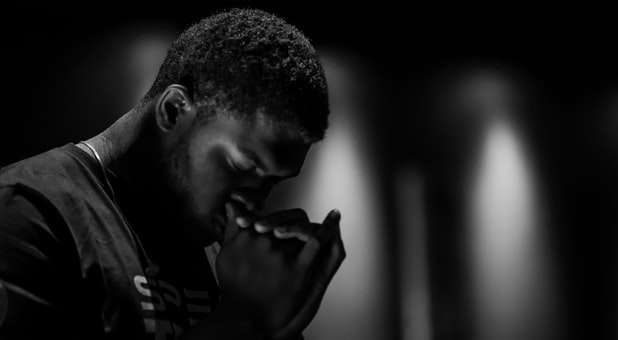
Development in prayer does not happen naturally for most people. It needs to be both caught and taught. Churches that recognize this will begin to look for ways to disciple their people in prayer at all levels.
Here are some things to consider as you seek to better disciple your people:
We Pray What We Know
From the youngest child to the oldest adult, we cannot pray out of our sphere of knowledge. When a parent is teaching a young child how to pray, the child usually prays for Mommy, Daddy, siblings, grandparents, pets—things that are in their immediate area of knowledge. But then they add a friend, a neighbor, a pastor. Good Sunday school teachers or parents add the lost to their list, maybe a nation of the world or a missionary.
Adults are like this too. When we start out praying, we start with our immediate sphere of knowledge—our needs (petition). If we are not taught to pray beyond that, we do not progress. Adults then need to put themselves in places where they hear other things being prayed for (intercession, spiritual growth, spiritual warfare). It is by hearing someone in church pray for a nation or community transformation that they will begin to add those things. This all comes from discipleship.
Can you see what happens if the only prayer time a church ever has in a worship service focuses on people's needs? Yes. They will grow believers who think that is all prayer is for—"Fix my life."
Church leaders need to look for ways to enlarge their people's prayer agenda and experiences. That should be a part of the planned discipleship curriculum of the church. Prayer beyond the classroom should become part of planning and instruction for teachers. Youth leaders and men's and women's group leaders need to do the same.
We All Pray Differently
One of the things that needs to be better understood in prayer discipleship is that we all do not pray the same way. Our personalities, character traits and spiritual gifts shape the way we pray.
For example, a person with the spiritual gift of helps or mercy may get excited praying for the needs of people. They will come to a prayer time that is focused on members' needs. But a person with a gift of evangelism will be bored to tears in such a prayer meeting. He or she wants to pray for the lost, for community transformation.
And then there is the fact that God gives many people a specific burden in prayer. Some in your congregation will eventually have a burden to pray for children, for their pastor, for the nation, for a missionary and so on.
Churches that try cookie-cutter prayer will only bless a few people. A church that wants to disciple its people well into prayer will consider this truth. That church will look for a variety of ways to conduct public prayer. It will look for ways to stimulate prayer burdens and personalities of its members.
Some in your congregation will value prayer as relationship, while others will be intercessors who believe prayer releases the will of God and expands His kingdom.
The problem with all of this is twofold. First, you will have issues with people who insist that their style or burden should be everyone's. So all need to pray for missions. Or everyone needs to focus on having 30 minutes of prayer first thing in the morning. Second, it can be a challenge for church leaders to provide for everyone.
The first problem can simply be solved with gentle correction. The second problem is ongoing, but a church can handle it effectively if they simply remember the truth and do not always do prayer the same way. Shake it up in your morning worship services. Make an effort to put various prayer opportunities in front of your people. Provide information on various days of prayer, and make prayer guides on different subjects available to your people. ![]()
Jonathan Graf is the host of Pray Beyond on the Charisma Podcast Network, the publisher of Prayer Connect magazine and the author of Restored Power: Becoming a Praying Church One Tweak at a Time.
Get Spirit-filled content delivered right to your inbox! Click here to subscribe to our newsletter.
Dr. Mark Rutland's
National Institute of Christian Leadership (NICL)
The NICL is one of the top leadership training programs in the U.S. taught by Dr. Mark Rutland. If you're the type of leader that likes to have total control over every aspect of your ministry and your future success, the NICL is right for you!
FREE NICL MINI-COURSE - Enroll for 3-hours of training from Dr. Rutland's full leadership course. Experience the NICL and decide if this training is right for you and your team.
Do you feel stuck? Do you feel like you’re not growing? Do you need help from an expert in leadership? There is no other leadership training like the NICL. Gain the leadership skills and confidence you need to lead your church, business or ministry. Get ready to accomplish all of your God-given dreams. CLICK HERE for NICL training dates and details.The NICL Online is an option for any leader with time or schedule constraints. It's also for leaders who want to expedite their training to receive advanced standing for Master Level credit hours. Work through Dr. Rutland's full training from the comfort of your home or ministry at your pace. Learn more about NICL Online. Learn more about NICL Online.


